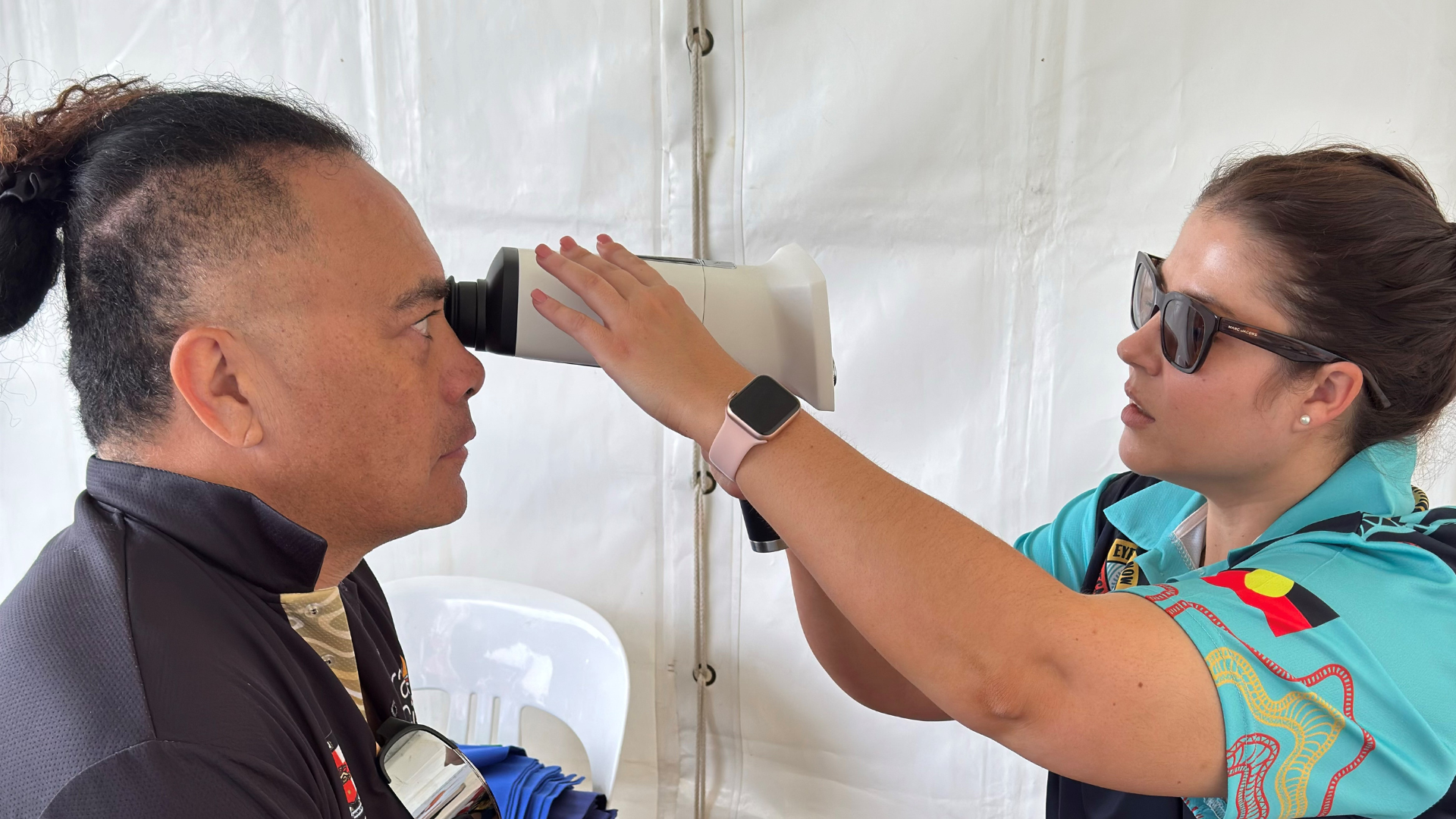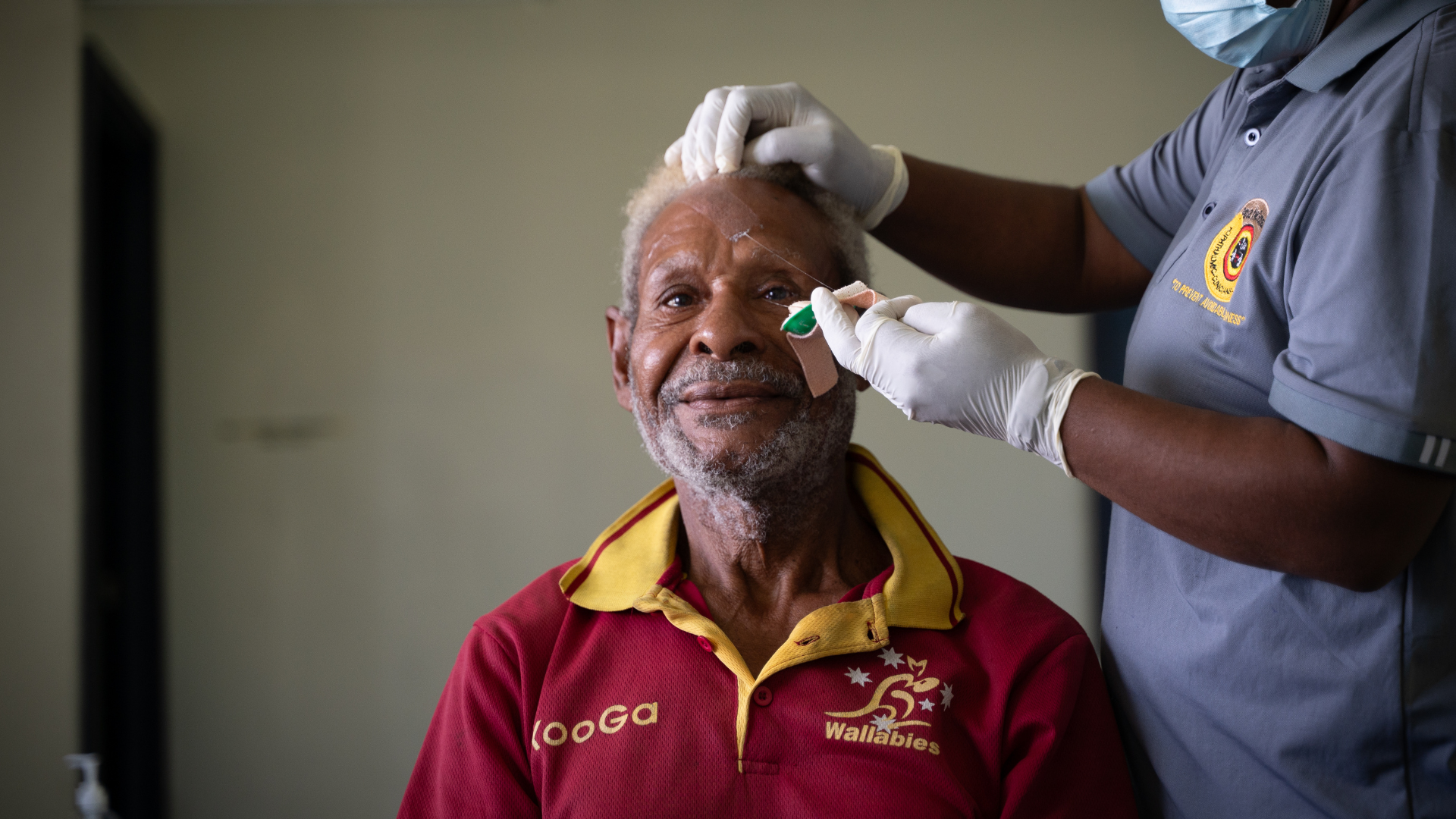7 easy tips to care for your child's eye health

As parents, we strive to provide the best possible care for our children. However, amidst all the responsibilities, we can sometimes overlook the importance of maintaining their eye health. Eye health plays a crucial role in a child's development and overall well-being, and with a few simple habits, parents can ensure that their children have healthy eyes throughout their lives. Keep reading to learn more about how parents can care for their children's eye health.
IN A HURRY?
- Schedule regular eye tests
- Encourage outdoor activities
- Provide a balanced diet
- Sun protection
- Have conversations about the importance of hygiene
- Encourage proper eye protection during sports
- Be aware of any allergies
1. SCHEDULE REGULAR EYE TESTS
You may wonder when it's time for an eye test, especially as early detection and treatment can prevent further complications and support healthy eye development. The Australian College of Optometry recommends that children should have an eye test before beginning school and every two years after. They should also get their eyes tested if you think there may be an issue.
Here are some common signs that your child might need an eye test:
- Squinting or rubbing their eyes frequently
- Sitting too close to the television or holding books too close to their face
- Frequent eye fatigue, eye redness, or headaches after activities such as reading, writing, or using digital devices
- Tilting their head to get a better view of objects
- Complaints of blurry vision
It's important to remember that these signs may vary depending on the child's age and the severity of the vision problem. If you observe any of these signs or have concerns about your child's sight, it's recommended to schedule an eye test.
2. ENCOURAGE OUTDOOR ACTIVITIES
In the age of digital devices, children are spending more time indoors, leading to increased eye strain and other vision problems. Encourage your children to engage in outdoor activities that provide a break from screen time.
Outdoor play not only stimulates their physical development but also helps in proper eye development and prevents myopia progression. Exposure to natural light and distant objects relaxes the eyes and reduces the risk of myopia (nearsightedness).
You can also promote healthy screen habits, such as encouraging breaks during prolonged screen use and maintaining an appropriate viewing distance. Try limiting screen time before bedtime to ensure quality sleep, as lack of sleep can also affect eye health.
3. PROVIDE A BALANCED DIET
A healthy diet nourishes the eyes, protects against macular degeneration and reduces the risk of developing eye-related conditions in the future.
A well-balanced diet not only promotes overall health but also supports good eye health. Include eye-friendly nutrients in your child's diet, such as omega-3 fatty acids, vitamin C, vitamin E, zinc, and lutein. These can be found in foods like leafy green vegetables, citrus fruits, fish, nuts, and seeds.
4. SUN PROTECTION
Protecting your child's eyes from the sun's harmful ultraviolet (UV) rays and potential injuries is crucial. Ensure your child wears sunglasses with UV protection when outdoors, especially during peak sunlight hours.
5. HAVE CONVERSATIONS ABOUT THE IMPORTANCE OF HYGIENE
Teaching your children proper eye hygiene is crucial for preventing eye infections. Encourage regular handwashing, especially before touching their eyes.
You should also teach them to avoid rubbing their eyes, as it can introduce bacteria and cause irritation or infections. Emphasise the importance of using clean towels and avoiding sharing personal items like contact lenses to prevent the spread of infections.
6. ENCOURAGE PROPER EYE PROTECTION DURING SPORTS
Engaging in sports and physical activities is beneficial for children's overall development, but it's also important to prioritise eye safety.
Encourage your child to wear appropriate eye protection, such as goggles or helmets, while participating in sports like football. These protective gears shield the eyes from potential injuries caused by flying objects, collisions or accidental contact, reducing the risk of serious eye damage.
7. BE AWARE OF ANY ALLERGIES
Allergies can potentially have a significant impact on children's eye health, leading to redness, itchiness and watery eyes.
Be mindful of common allergens such as pollen, dust mites or pet dander. Keep your child's environment clean, dust-free and well-ventilated. If necessary, consult with a pediatrician for appropriate allergy management strategies, such as eye drops.
DISCLAIMER: The content on this page is not intended to be medical advice. For specific medical advice, please contact your health professional.
Meet the authors
Related articles

Michael Amendolia’s favourite photos of sight restored

Koori Knockout raises eye health awareness among thousands on World Sight Day



